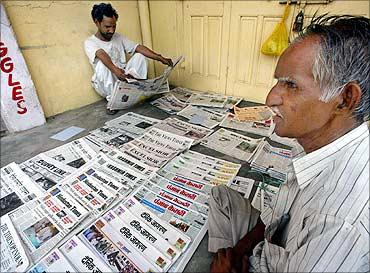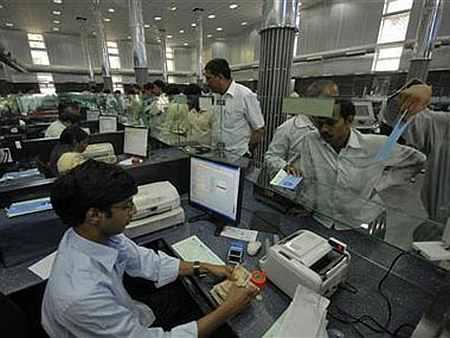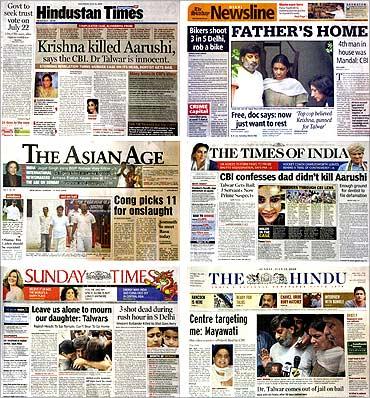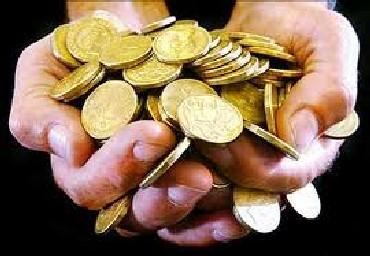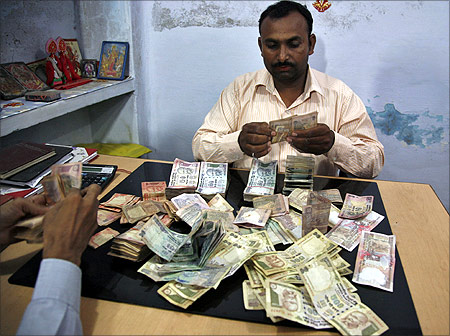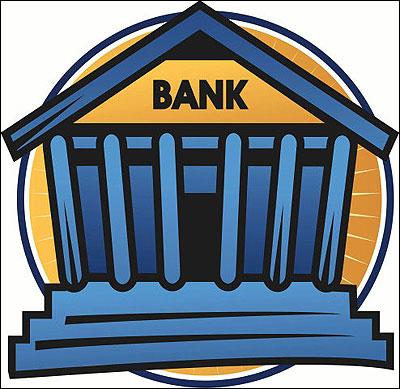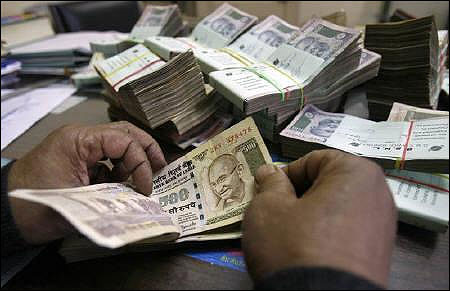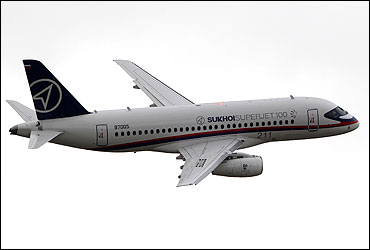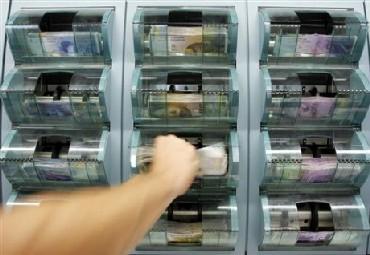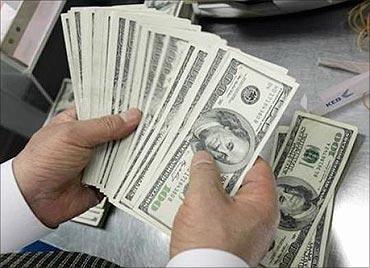 | « Back to article | Print this article |
A newspaper that wanted to fly
In December, a news report stated that Deccan Chronicle Holdings Ltd had bought over promoters' stake in Future Capital for Rs 700 crore (Rs 7 billion).
While the promoters for DCHL -- the Reddys -- denied it, it turned out less than eight months later, it was Future Capital that was sitting on a lien on DCHL shares, amounting to over half (54 per cent) of Deccan Chronicle's net worth, being held as collateral against a Rs 170-crore (Rs 1.7-billion) loan to the newspaper group.
In a further complication, the depository participant who was supposed to be holding these DCHL promoter shares and executing the loan-cum-lien agreement, says it holds only around half these shares: A portion has already been released and moved to another depository upon the request of the promoters of DCHL.
Click NEXT to read further. . .
A newspaper that wanted to fly
| THE LOAN THAT STARTED IT ALL |
| Early 2012: DCHL and Aviotech borrow Rs 170 crore (Rs 1.7 billion) from Future Capital. Lien created on 60.4 million shares held by Karvy on promoters' behalf |
Click NEXT to read further. . .
A newspaper that wanted to fly
How did the Reddys, with their opulent lifestyle and ambitious, high-profile, new ventures in sports and aviation, as well as top political connections, fall from grace?
A number game
T Venkattram Reddy, chairman of Deccan Chronicle Holdings; his brother T Vinayak Ravi Reddy, vice-chairman; and P K Iyer, also vice-chairman and managing direct#8744 are the promoter group shareholders and control Deccan Chronicle with identical holdings of 24.61 per cent each.
They held a substantial portion of these shares with Karvy Stock Broking, a depository participant based in Hyderabad.
Dealings between Karvy, Future Group and the Reddys have now become a matter of police and Sebi investigations.
The Deccan promoters have acknowledged that the company is facing a liquidity crisis, but not a solvency issue, as claimed by some of its lenders.
In addition to the sums owed to Future Capital and Religare Finvest, the group is also said to have other liabilities, which it is finding difficult to meet.
Click NEXT to read further. . .
A newspaper that wanted to fly
One of these is the repayment of 11.25 per cent non-convertible debentures with a maturity of 364 days.
These debentures, issued largely to the institutions, came up for redemption on June 26. But, Deccan allegedly defaulted, leading to litigation.
The promoters of DCHL did not respond to several attempts made by Business Standard to reach them.
In a liquidation petition filed in Andhra Pradesh High Court, state-controlled financial institution, IFCI, a debenture holder, has said: "The petitioner understands that, in addition to the Rs 150 crore (Rs 1.5 billion) liability to subscribers of the above-referred NCDs, the respondent has huge debts to various banks, financial institutions, NBFCs, etc, running into thousands of crores of rupees.
Click NEXT to read further. . .
A newspaper that wanted to fly
The petitioner understands that the respondent has defaulted in respect of many liabilities and apprehends many more winding-up petitions may be filed by other creditors."
The petition sought the relief of winding up, "as the respondent company is unable to discharge its debts of its creditors and has almost become insolvent."
Reddy, in his statement published in a group newspaper, The Asian Age, said the "Deccan Chronicle's value as a 75-year-old leading newspaper, the value of its fixed assets, comprising land and buildings, as well as plants and machinery at multiple locations, and the value of the Deccan Chargers IPL team, far exceed the company's debt."
He also added the debt the company had incurred was through the usual course of business, and the amount stated in a section of the media to be in the thousands of crores was false.
Click NEXT to read further. . .
A newspaper that wanted to fly
The company was actively engaging with its lenders to find a solution to the current liquidity issue, Reddy said.
To be fair to Reddy, there was nothing worrisome in the numbers as late as the March quarter.
"You look at the FY11 and FY12 balance sheets, there is hardly anything to suggest the group is in trouble," says a fund manager.
"Till June 15, the promoters repaid everyone.
"He even managed to secure a significant loan from one of the leading private banks. But, things seemed to have gone downhill since," he adds.
In fact, according to the documents filed with the registrar of companies, the company has raised loans of Rs 880 crore (Rs 8.8 billion) from banks and financial institutions since the dispute with Future in June, the largest being a Rs 490-crore (Rs 4.9-billion) loan from ICICI Bank on June 18.
Click NEXT to read further. . .
A newspaper that wanted to fly
This was secured by hypothecation of moveable properties and current assets, both present and future, according to the deed.
Deccan has also tapped other lenders, such as YES Bank (Rs 50 crore or Rs 500 million), IDFC (Rs 170 crore or Rs 1.7 billion), Axis Bank (Rs 100 crore or Rs 1 billion) and Indian Overseas Bank (Rs 70 crore or Rs 700 million), the data showed.
It is not very clear why a newspaper operation which was generating its own cash required such huge sums of money.
There were no new editions being launched, nor any major expansion planned. Some feel the flailing attempts at high-profile, non-core businesses in sports and aviation ran the flagship aground.
Click NEXT to read further. . .
A newspaper that wanted to fly
| MOUNTING DEBT | ||
| Loans taken by DC after June, 2012 | ||
| Date | Lender | Amount |
| Jun 18 | ICICI Bank | 490.0 |
| Jun 29 | Axis bank | 100.0 |
| Jul 2 | IDFC | 170.0 |
| Jul 11 | Yes Bank | 50.0 |
| Aug 2 | IOB | 70.0 |
|
| Total | 880.0 |
| Earlier dues | ||
| ICICI Bank(for company aircraft) | 10.0 | |
| GE Capital | 28.5 | |
| Canara Bank | 75.0 | |
| ICICI Bank | 120.0 | |
| Future Capital | 170.0 | |
| NCD | 211.0 | |
| Total | 614.5 | |
| Grand total | 1494.5 | |
| Source: MCA filings, hypothecation deeds |
Click NEXT to read further. . .
A newspaper that wanted to fly
Flying high
Reddy, known for his fleet of Bentleys, custom-made cigars and flashy parties, was also building a niche aviation business.
While DCHL, the listed firm, owns the 75-year-old newspaper business, the IPL team and the bookstore chain, Odyssey, the aviation business are outside its balance sheet and run by a firm called Aviotech, "created with the clear objective of capitalising on vast, untapped niche areas in the rapidly-growing corporate aviation and defence aerospace segments in India", by providing "seven-star luxury experiences at a fraction of the cost of owning or chartering a private jet," according to the company website.
This was the second attempt at the aviation business, after an earlier one to launch a cargo airline, named Flyington Freighters, got caught in the turbulence of the slowdown.
Click NEXT to read further. . .
A newspaper that wanted to fly
Sources said both Flyington and Aviotech had placed orders for some 10-12 aircraft each.
While the former had placed those with Airbus, Aviotech was said to have placed orders for 10 Sukhoi Superjet 100s with the Russain plane maker.
Reports in trade journals suggest both these orders were in the middle of payment disputes.
In early 2011, Flyington reportedly cancelled orders for 12 Airbus A 330s, placed in 2007, and its name did not figure in the January 2011 list of order and delivery figures.
Cancelling such huge orders comes at a cost, as an airline would have to forfeit deposits that run into millions of dollars.
Click NEXT to read further. . .
A newspaper that wanted to fly
An email sent to Jeff Livings, CEO, Aviotech, did not elicit a response.
Livings, a veteran with 35 years in the aviation business, was the chief operating officer of Flyington before he moved to lead Aviotech a couple of years ago.
Of the Rs 170 crore (Rs 1.7 billion) raised from Future, Rs 50 crore (Rs 500 million) went to Aviotech, according to the Karvy complaint, bolstering market worries about off-balance-sheet items dragging down what is essentially a media company, with a strong base in the South.
These are difficult times for the core business, but hardly life-threatening, at least according to Reddy.
Click NEXT to read further. . .
A newspaper that wanted to fly
The liquidity crisis has arisen "due to a significant reduction in ad spend by domestic and multinational companies".
Even Deccan Chargers, the IPL team owned by DCHL, which had run-ins with its erstwhile CEO Tim Wright, who won a suit in London, seemed to be under control.
The fund manager quoted earlier said the team's revenue from television largely took care of itself.
"They have to pay a $10-million annual fee to BCCI, and have to spend a few crores on player auction.
"These are taken care of by the revenue share from TV and ticket sales."
In the year ended March 12, DCHL made a net profit of Rs 60 crore (Rs 600 million) on a revenue of Rs 870 crore (Rs 8.7 billion).
Click NEXT to read further. . .
A newspaper that wanted to fly
While the top line has been under pressure with declining advertising spends, things have not deteriorated so much to suggest an 80-per cent decline in the stock price over the past year.
One year ago, DCHL's shares were trading at around the Rs 70 mark.
After hitting an all-time low of Rs 12.65 last week, the shares recovered to close at Rs 14.20 on Monday.
At this price, the total market capitalisation of DCHL stands at Rs 345 crore (Rs 3.45 billion), with close to 70 per cent of the shares pledged with lenders, rendering it a low-hanging fruit for predators.
If this still does not add up to the spectacular collapse, a Deccan Chronicle employee tries to offer his own insight.
"Over the past few months, the Reddys have grown close to Jaganmohan Reddy, who is widely expected to come back to power," he says, "which seems to have angered the powers that be".
On June 15, Jagan's YSR Congress routed the ruling Congress in the by-elections, winning 15 of the 18 Assembly seats.
On July 5, the Deccan Chronicle carried an exclusive interview of Jagan's mother, YS Vijayalakshmi, saying her party would trounce the Congress in the 2014 Assembly polls.
